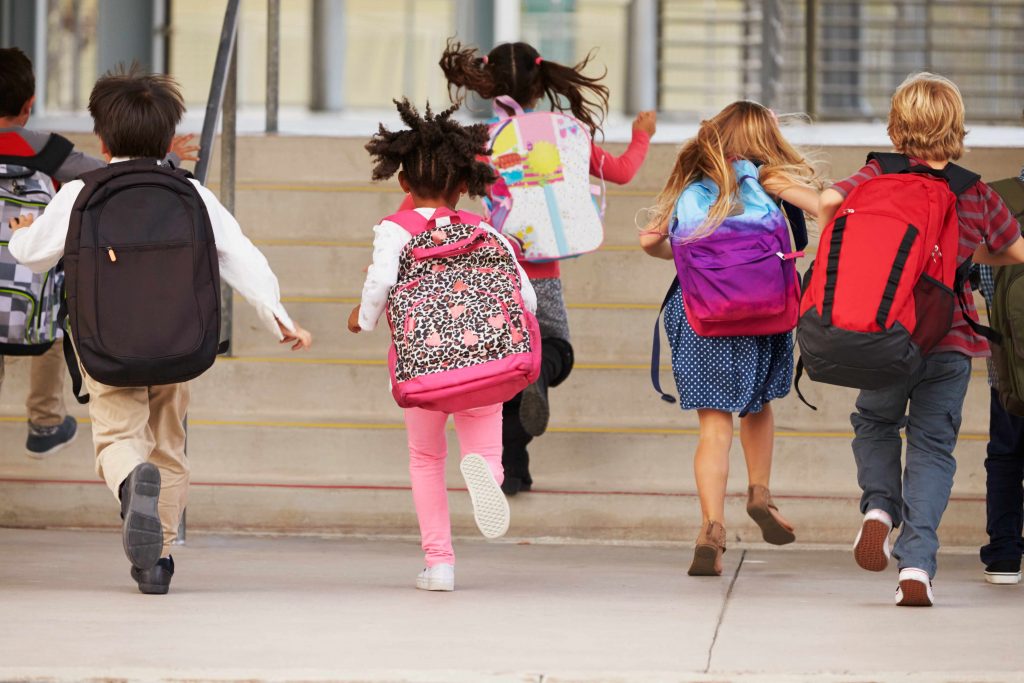-
Mayo Clinic Q & A
Mayo Clinic Q and A: Who needs back-to-school COVID-19 vaccinations and boosters?

DEAR MAYO CLINIC: I have two children, ages 5 and 14. My younger child will attend school for the first time this fall. We have been diligent about ensuring our family is up to date with vaccinations, but we are wondering whether the kids need a COVID-19 booster vaccination before heading to school. Do my spouse and I need to have a booster vaccination? I'm still confused as to who needs to be vaccinated or boosted and when.
ANSWER: Childhood immunization schedules can be confusing without considering what's needed for COVID-19. Vaccinations give kids an extra layer of protection against many serious infections. Regardless of your children's ages, it is important to ensure they are vaccinated appropriately before the start of a new school year.
A common question parents ask is whether the risk of getting a COVID-19 vaccination is higher than the risk of children getting infected with COVID-19. While younger children have tended to fare better when they have become infected with COVID-19, vaccinations are an important step in managing the spread of the virus. These vaccinations have been found to be safe and effective.
It is understandable that some parents may be wary of a vaccine that was developed in a relatively short period of time, but they should not feel that it's any less safe because of that.
Clinical trials, ongoing safety monitoring programs and research studies have shown that COVID-19 vaccinations are safe and are well-tolerated in all kids. Providing the extra layer of protection against getting sick with COVID-19 will not only help keep kids from missing school, but also can help prevent complications that have been associated with COVID-19 infection.
For example, vaccinations may lesson symptoms of post-COVID-19 syndromes, which we have seen in some children and teens. Also, getting vaccinated can lessen the risk of developing other complications like multisystem inflammatory syndrome in children, or MIS-C, which can be a severe life-threatening complication of COVID-19 infection.
Vaccinations and booster vaccinations also will reduce the amount of transmission in high-traffic places like day care facilities and schools. Ultimately, the best way to end the COVID-19 pandemic and prevent new variants from developing is to stop the virus from spreading from person to person. Therefore, you are encouraged to make sure your children are up to date with their COVID-19 vaccinations before returning to school.
At this time, everyone 6 months of age and older is now eligible for an authorized COVID-19 vaccination, but many parents still have questions about the timing of booster vaccinations. The Centers for Disease Control and Prevention has published vaccination guidance, but children ages 5–11 are eligible for one booster at least five months after completing their primary vaccination series. The same is true for older children.
Regarding you and your husband, it is now recommended that adults 50 years and older have two booster vaccinations at least four months apart. However, it is important that you speak to your health care team about what is best based on your situation. If anyone in your family is immunocompromised, the timing may differ, and more vaccination doses may be needed to get better protection.
In addition, I recommend taking time to review the new guidance for schools from the Centers for Disease Control and Prevention. This guidance shifts the focus from restrictive measures like quarantining and social distancing to reducing severe disease from COVID-19 through measures such as vaccination.
Parents and guardians should touch base with their children's health care professional to see if they are due for any vaccinations before the new school year. Your children can receive their COVID-19 vaccinations at the same time as any other vaccinations they may require, including their influenza vaccination. — Dr. Nipunie Rajapakse, Pediatric and Adolescent Medicine, Mayo Clinic, Rochester, Minnesota
____________________________________________
Information in this post was accurate at the time of its posting. Due to the fluid nature of the COVID-19 pandemic, scientific understanding, along with guidelines and recommendations, may have changed since the original publication date.
For more information and all your COVID-19 coverage, go to the Mayo Clinic News Network and mayoclinic.org.
****************************
Related Articles
- Mayo Clinic Minute: Back-to-school COVID-19 vaccinations for kids published 8/15/22
- News Release: Mayo Clinic research shows bebtelovimab to be a reliable option for treating COVID-19 in era of BA.2, other subvariants published 8/15/22
- Mayo Clinic Q and A: New variants of COVID-19 published 8/4/22
- COVID-19 variant BA.5 is dominant strain; BA.2.75 is being monitored published 7/28/22
- News Release: Mayo Clinic researchers pinpoint genetic variations that might sway course of COVID-19 published 7/25/22
- Mayo Clinic Q&A podcast: The importance of COVID-19 vaccines for children under 5 published 7/6/22







